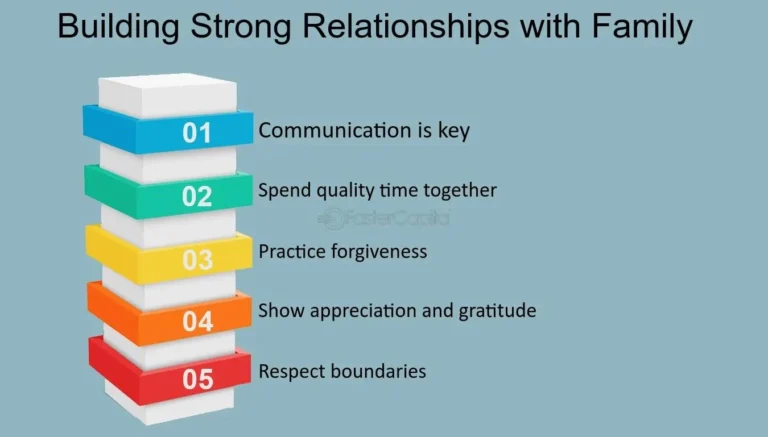The Mind-Body Connection: A Holistic Approach to Well-being
Holistic well-being recognizes the profound interconnectedness of our mental and physical selves. It embraces the idea that true health flourishes when we address the entire being‚ not just isolated symptoms. This approach emphasizes lifestyle choices that nurture both mind and body‚ leading to a more balanced and fulfilling life. It acknowledges the powerful influence our thoughts‚ emotions‚ and beliefs have on our physical health and overall vitality.
Understanding the Interplay of Mind and Body
The mind-body connection is a fundamental principle of holistic health‚ recognizing the intricate and dynamic relationship between our thoughts‚ emotions‚ beliefs‚ and behaviors‚ and their impact on our physical health and well-being. This interconnectedness means that mental and emotional states can significantly influence physiological processes‚ and conversely‚ physical health can impact our mental and emotional landscape. Understanding this interplay is crucial for cultivating overall wellness.
Consider the impact of stress. When faced with a challenging situation‚ the mind triggers a cascade of physiological responses‚ including the release of stress hormones like cortisol and adrenaline. While these hormones are essential for short-term responses to threats‚ chronic stress can lead to a sustained elevation of these hormones‚ negatively impacting various bodily systems. This can manifest as digestive problems‚ weakened immune function‚ sleep disturbances‚ and increased risk of cardiovascular disease. Conversely‚ positive mental states‚ like joy and contentment‚ can promote relaxation‚ boost the immune system‚ and enhance overall well-being.
The pathways through which the mind and body communicate are complex and multifaceted. The nervous system‚ endocrine system‚ and immune system play key roles in this intricate dance. For instance‚ the vagus nerve‚ a major component of the parasympathetic nervous system‚ acts as a bridge between the brain and various organs‚ influencing heart rate‚ digestion‚ and immune responses. Neurotransmitters‚ chemical messengers in the brain‚ also play a crucial role. Serotonin‚ for example‚ influences mood‚ sleep‚ and appetite‚ highlighting the intricate link between mental and physical processes. Furthermore‚ the gut microbiome‚ the community of microorganisms residing in our digestive tract‚ has emerged as a significant player in the mind-body connection‚ influencing brain function and behavior through complex biochemical pathways.
Recognizing the profound interplay between mind and body empowers us to take a more proactive and holistic approach to our health. By cultivating positive mental and emotional states through practices like mindfulness‚ meditation‚ and stress management techniques‚ we can positively influence our physical health and overall well-being. This understanding allows us to move beyond treating isolated symptoms and address the root causes of illness‚ fostering a more integrated and harmonious approach to health and wellness.
Practical Techniques for Cultivating Mind-Body Harmony
Cultivating mind-body harmony involves engaging in practices that nurture both our mental and physical well-being. These techniques empower us to manage stress‚ enhance emotional regulation‚ and promote a deeper connection between our inner and outer worlds. Integrating these practices into our daily lives can lead to a more balanced‚ resilient‚ and fulfilling existence.
Mindfulness and Meditation: These practices cultivate present moment awareness‚ helping us to observe our thoughts and emotions without judgment. Regular mindfulness and meditation can reduce stress‚ improve focus‚ and foster a sense of calm. Even a few minutes of daily practice can make a significant difference.
Yoga and Tai Chi: These ancient practices combine physical postures‚ breathwork‚ and meditation to promote physical flexibility‚ strength‚ and balance‚ while also calming the mind and reducing stress. The flowing movements and focused breathing cultivate a sense of presence and connection to the body.
Spending Time in Nature: Connecting with the natural world has a profound impact on our well-being. Studies have shown that spending time outdoors can reduce stress hormones‚ lower blood pressure‚ and improve mood. Whether it’s a walk in the park‚ gardening‚ or simply observing the beauty of nature‚ immersing ourselves in natural environments can be deeply restorative.
Creative Expression: Engaging in creative activities‚ such as painting‚ writing‚ music‚ or dance‚ provides an outlet for self-expression and emotional processing. These activities can reduce stress‚ enhance self-awareness‚ and foster a sense of joy and accomplishment.
Deep Breathing Exercises: Consciously slowing down and deepening our breath can activate the parasympathetic nervous system‚ promoting relaxation and reducing stress. Deep breathing techniques can be practiced anytime‚ anywhere‚ to quickly calm the mind and center the body.
Prioritizing Sleep: Adequate sleep is essential for both physical and mental health. During sleep‚ the body repairs and restores itself‚ and the brain consolidates memories and processes emotions. Establishing a regular sleep schedule and creating a relaxing bedtime routine can significantly improve sleep quality.
By incorporating these practical techniques into our daily lives‚ we can cultivate a deeper connection between our mind and body‚ fostering greater harmony‚ resilience‚ and overall well-being. Remember that consistency is key‚ and even small steps can lead to significant positive changes over time.
Benefits of a Holistic Approach to Health
Embracing a holistic approach to health offers a wide range of benefits that extend beyond simply addressing physical symptoms. It focuses on nurturing the whole person – mind‚ body‚ and spirit – leading to a more balanced‚ resilient‚ and fulfilling life. By recognizing the interconnectedness of our various aspects‚ we can unlock our full potential for well-being.
Reduced Stress and Improved Mood: Holistic practices like mindfulness‚ meditation‚ and yoga have been shown to effectively reduce stress hormones and promote relaxation. This can lead to improved mood‚ greater emotional stability‚ and enhanced resilience in the face of challenges.
Enhanced Physical Health: By addressing the underlying causes of illness rather than just treating symptoms‚ a holistic approach can lead to improved physical health. This includes strengthened immune function‚ reduced risk of chronic diseases‚ and improved management of existing conditions.
Increased Self-Awareness: Holistic practices often encourage introspection and self-reflection‚ leading to a deeper understanding of our thoughts‚ emotions‚ and behaviors. This increased self-awareness can empower us to make healthier choices and cultivate more positive lifestyle habits.
Greater Resilience: A holistic approach equips us with the tools and skills to navigate life’s inevitable challenges with greater ease and resilience. By fostering a strong mind-body connection‚ we can better cope with stress‚ adversity‚ and setbacks.
Improved Sleep Quality: Many holistic practices‚ such as meditation and yoga‚ can promote relaxation and reduce stress‚ leading to improved sleep quality. Adequate sleep is crucial for both physical and mental health‚ impacting everything from mood and cognitive function to immune function and hormone regulation.
Enhanced Sense of Purpose and Meaning: By focusing on overall well-being‚ a holistic approach can help us connect with our values and discover a deeper sense of purpose and meaning in life. This can lead to greater fulfillment‚ satisfaction‚ and a more positive outlook on life.
Increased Energy Levels: By addressing the root causes of fatigue‚ such as stress‚ poor nutrition‚ or lack of sleep‚ a holistic approach can lead to increased energy levels and vitality. This allows us to engage more fully in life and pursue our passions with greater enthusiasm.
Adopting a holistic approach to health is an investment in our overall well-being. It empowers us to take an active role in our health journey and cultivate a more balanced‚ vibrant‚ and meaningful life.
Integrating Mind-Body Practices into Daily Life
Integrating mind-body practices into our daily routines doesn’t require a complete life overhaul. Small‚ consistent steps can make a significant difference in cultivating overall well-being. The key is to find practices that resonate with you and fit seamlessly into your lifestyle. Start small‚ be patient with yourself‚ and celebrate your progress along the way.
Morning Rituals: Begin your day with a few minutes of mindfulness or meditation to set a positive tone. Gentle stretching or a short yoga flow can also energize the body and calm the mind. Even a few deep breaths before starting your day can make a difference.
Mindful Moments Throughout the Day: Incorporate mindfulness into everyday activities. Pay attention to the sensations of your breath‚ the taste of your food‚ or the sounds around you. These brief moments of presence can help you reconnect with yourself and reduce stress throughout the day.
Nature Breaks: Step outside for a few minutes during your lunch break or after work. Take a walk in the park‚ sit under a tree‚ or simply observe the natural world around you. Connecting with nature can be incredibly restorative and grounding.
Movement Integration: Find ways to incorporate movement into your daily routine. Take the stairs instead of the elevator‚ walk or bike to work‚ or simply dance to your favorite music. Regular physical activity is essential for both physical and mental well-being.
Evening Wind-Down Routine: Create a relaxing evening routine to prepare your mind and body for sleep. Take a warm bath‚ read a book‚ or practice gentle stretches. Avoid screen time before bed and create a calming atmosphere in your bedroom.
Gratitude Practice: Take a few moments each day to reflect on the things you are grateful for. This simple practice can shift your perspective and cultivate a more positive outlook on life.
Connecting with Others: Nurturing social connections is an important aspect of well-being. Make time for meaningful interactions with loved ones‚ engage in activities you enjoy with others‚ or join a community group.
By incorporating these simple practices into your daily routine‚ you can gradually cultivate a more holistic approach to health and well-being. Remember that consistency is key‚ and even small changes can lead to significant improvements over time. Listen to your body‚ be patient with yourself‚ and enjoy the journey towards greater balance and harmony.






